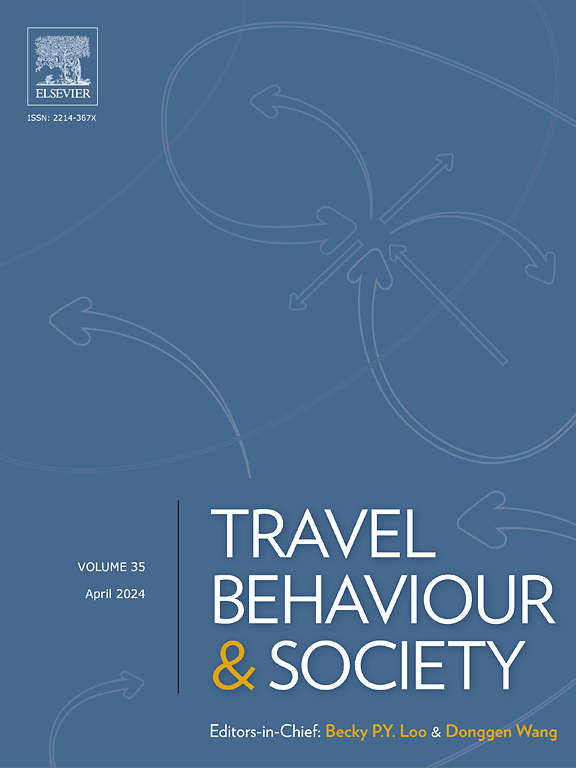Development and validation of the Commuting Satisfaction Scale with a sample of German Foreign Service employees worldwide
IF 5.1
2区 工程技术
Q1 TRANSPORTATION
引用次数: 0
Abstract
Commuting satisfaction is a crucial factor influencing individuals’ well-being and travel behaviour, with important implications for policy making and traffic planning. However, validated scales for measuring individuals’ satisfaction with their daily commute to work are scarce in the literature. This paper presents and validates the Commuting Satisfaction Scale (CSS), which was developed using data from a cross-sectional survey of German Federal Foreign Office employees from various missions around the world. The scale covers seven key aspects of commuting satisfaction: duration, comfort, crowding/congestion, reliability, safety, risk of accidents, and the behaviour of others. In addition, the scale is relevant to different modes of travel: car, public transport, and walking/cycling. The results of the exploratory factor analysis revealed a one-factor structure for the CSS, and the scale is highly reliable. Consistent with theoretical assumptions and previous literature, commute duration, commute length, and travel mode are statistically significantly related to the CSS. Furthermore, higher commuting satisfaction is statistically significantly associated with higher subjective well-being, better health, and lower stress levels. This indicates high construct and criterion-related validity for the CSS, suggesting that it is a valid measure of commuting satisfaction.
通勤满意度量表的开发与验证,以德国驻外机构员工为样本
通勤满意度是影响个人福祉和出行行为的关键因素,对政策制定和交通规划具有重要影响。然而,用于衡量个人对日常通勤满意度的有效量表在文献中并不多见。本文介绍并验证了通勤满意度量表 (CSS),该量表是通过对来自世界各地的德国联邦外交部雇员的横截面调查数据编制而成的。该量表涵盖了通勤满意度的七个主要方面:持续时间、舒适度、拥挤程度、可靠性、安全性、事故风险和他人行为。此外,该量表还适用于不同的出行方式:汽车、公共交通和步行/骑自行车。探索性因子分析的结果显示,CSS 采用了单因子结构,量表的可靠性很高。与理论假设和以往文献一致的是,通勤时间、通勤长度和出行方式在统计上与 CSS 有显著的相关性。此外,通勤满意度越高,主观幸福感越高,健康状况越好,压力水平越低,这在统计学上有明显的相关性。这表明,CSS 具有较高的建构有效性和标准相关有效性,是衡量通勤满意度的有效指标。
本文章由计算机程序翻译,如有差异,请以英文原文为准。
求助全文
约1分钟内获得全文
求助全文
来源期刊

Travel Behaviour and Society
TRANSPORTATION-
CiteScore
9.80
自引率
7.70%
发文量
109
期刊介绍:
Travel Behaviour and Society is an interdisciplinary journal publishing high-quality original papers which report leading edge research in theories, methodologies and applications concerning transportation issues and challenges which involve the social and spatial dimensions. In particular, it provides a discussion forum for major research in travel behaviour, transportation infrastructure, transportation and environmental issues, mobility and social sustainability, transportation geographic information systems (TGIS), transportation and quality of life, transportation data collection and analysis, etc.
 求助内容:
求助内容: 应助结果提醒方式:
应助结果提醒方式:


